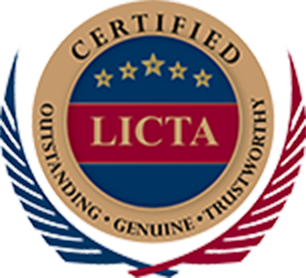Introduction
Under the Malaysia Trust Structure, a trust serves as a legal arrangement that manages property or assets — such as money, investments, land, or buildings — for the benefit of individuals who may not be able to manage them personally.
In Malaysia, trusts are often created for estate planning, family protection, charitable purposes, or business succession.
This article outlines how a trust is created, who the main parties are, and how it functions under Malaysian law.
What Is a Trust?
A trust is an arrangement where a person (the settlor) transfers ownership of their assets to another person (the trustee) to hold and manage on behalf of one or more beneficiaries.
Common Reasons to Establish a Trust
- To protect and control family property or assets.
- When an individual is too young or unable to handle their own affairs.
- To pass on property during one’s lifetime.
- To transfer assets upon death through a will.
- To set up charitable or special-purpose trusts (e.g. animal care or education).
How a Trust Is Created
| Step | Description |
| 1. Legal Transfer of Assets | The settlor transfers ownership of assets to an appointed trustee via a trust deed, forming the trust fund. |
| 2. Trustee’s Role | The trustee manages and holds the property according to the settlor’s instructions for the benefit of the beneficiaries. |
| 3. Not a Separate Legal Entity | A trust itself is not a separate legal entity but an equitable obligation — enforceable by beneficiaries. |
| 4. Created During Lifetime or Upon Death | Trusts may be established while the settlor is alive (inter vivos trust) or upon death (testamentary trust). |
| 5. Deed of Family Arrangement | Beneficiaries may agree to redistribute or retain assets for one another’s benefit. For example, family members may leave an estate intact for a widow to enjoy income for life before the property is later divided among children. These arrangements are treated as trusts if genuine and properly carried out. |
Key Parties in a Trust
1️⃣ The Settlor
- Creates the trust and defines its objectives.
- Transfers ownership of assets to form the trust fund.
- Specifies how the assets are to be managed through the trust deed.
2️⃣ The Trustee
- Holds legal ownership of the property or assets within the trust.
- Responsible for managing the trust according to the settlor’s wishes.
- Must act in the best interest of the beneficiaries (fiduciary duty).
- Can be an individual, a group of individuals, or a corporate entity.
- May receive remuneration if this is stated in the trust deed.
- Accountable for proper administration, documentation, and reporting.
3️⃣ The Beneficiaries
- The individuals or entities who benefit from the trust.
- May receive income (e.g. investment returns, rent) or capital (e.g. property).
- Their rights depend on the trust deed and the trustee’s discretion, if applicable.
- There may be one or multiple beneficiaries.
Legal Foundation of Trusts in Malaysia
Trusts in Malaysia are recognized under common law principles and guided by the Trustee Act 1949 as well as relevant sections of the Income Tax Act 1967 (Sections 61–67) for administrative and compliance purposes.
Although a trust is not a separate legal entity, it operates through its trustee, who holds the property in trust for the beneficiaries according to the deed’s terms.
Proper documentation, including the trust deed and records of assets, ensures transparency and enforceability in case of disputes.
Example: Family Trust Arrangement
Mr. Lim establishes a family trust, transferring his properties and investment income to a trustee to manage for his wife and two children.
- The trustee ensures the family’s living expenses are covered through the income generated.
- The children will receive the properties equally once they reach the age of 25.
This arrangement helps preserve family wealth, ensures control over asset use, and provides financial security to dependents.
Key Takeaways
- A trust is a legal arrangement to manage assets for beneficiaries.
- It involves three key parties: settlor, trustee, and beneficiaries.
- A trust can be created during one’s lifetime or upon death.
- Proper documentation (trust deed) ensures clear control and purpose.
- Commonly used for family wealth management and charitable causes.
ANC Group – Your Personal Tax Advisor
Tax consulting is the core service of ANC Group. Our tax professionals provide clients with comprehensive tax support and guidance. We offer tax consulting and compliance services for expatriates, entrepreneurs, and listed and non-listed companies.
Our tax consulting services include business tax, transaction tax, personal tax, and corporate income tax. We don’t just guide you in interpreting and applying complicated taxation rules, but to explore new opportunities and business trends.
ANC Group keep you abreast with Malaysia tax updates and any changes in the local regulations.
We work closely with industry specialists, authorities, and associated professionals within ANC Group to provide the best-in-class integrated tax planning solutions. ANC specialists coordinate the accounting and taxation services to bring your business to success.
If you need professional tax advisory services regarding the Malaysia Income Tax Act 1967, our team is ready to assist you. Contact us here to discuss how we can support your business.










